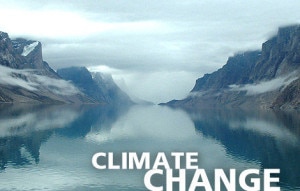Radical climate change just around the corner: Study

KATHMANDU, Nepal- Earth may experience a radically different climate within 34 years, forever changing life as we know it, said a study that aims to bring the dangers of global warming into sharper focus, said a news report.
On current trends of greenhouse-gas emissions, 2047 will mark the year at which the climate at most places on Earth will shift beyond documented extremes, the news report by news agency AFP said, referring to the findings of the study report.
This date is pushed back to 2069 under a scenario in which fossil-fuel burning emissions are stabilized, said an analysis of climate projections published in the journal Nature.
The new study took a different tack by distinguishing between different areas of the world, and seeking to identify the year in which climate change will cross the threshold where weather events once viewed as extreme become the norm. It looked at effects such as air and sea-surface temperature, rainfall and ocean acidity.
“The work demonstrates that we are pushing the ecosystems of the world out of the environment in which they evolved into wholly new conditions that they may not be able to cope with. Extinctions are likely to result,” the agency report quoted Ken Caldeira of the Carnegie Institution for Science’s global ecology department as commenting.
The tropics may be hit soonest and hardest, according to the study. Tropical plants and animals are not used to variations in climate and are thus more vulnerable to even small changes. “The tropics hold the world’s greatest diversity of marine and terrestrial species and will experience unprecedented climates some 10 years earlier than anywhere else on Earth,” said a statement. They are also home to the bulk of the world’s population and contribute significantly to global food supply.
Under a business-as-usual emissions scenario, the team predicted dates of “climate departure” ranging from 2020 for Manokwari in Indonesia, 2029 for Lagos in Nigeria and 2031 for Mexico City, to 2066 for Reykjavik in Iceland and 2071 in Anchorage, Alaska.
The date of 2047 is based on a “business-as-usual” scenario under which atmospheric levels of carbon dioxide (CO2) continue unabated.

